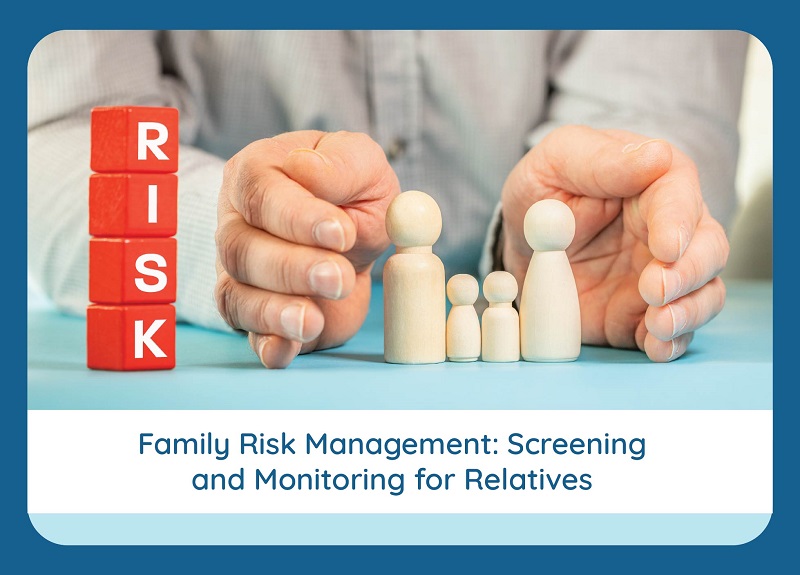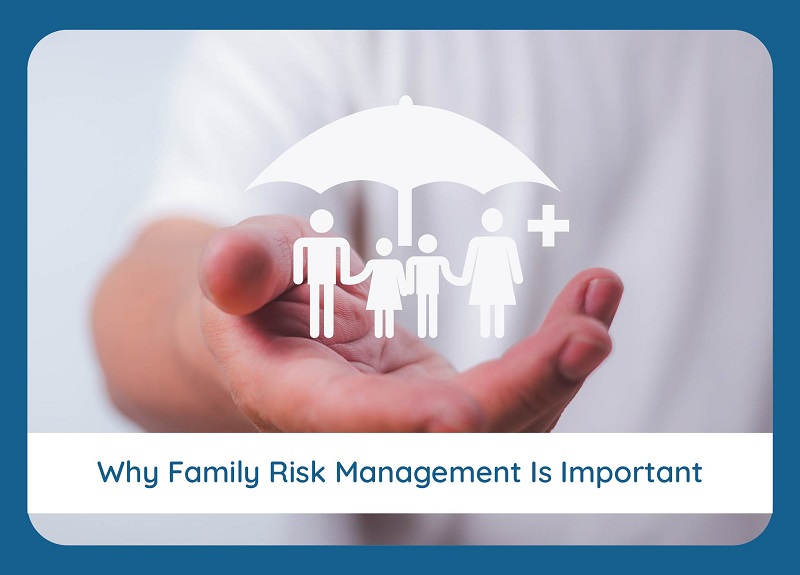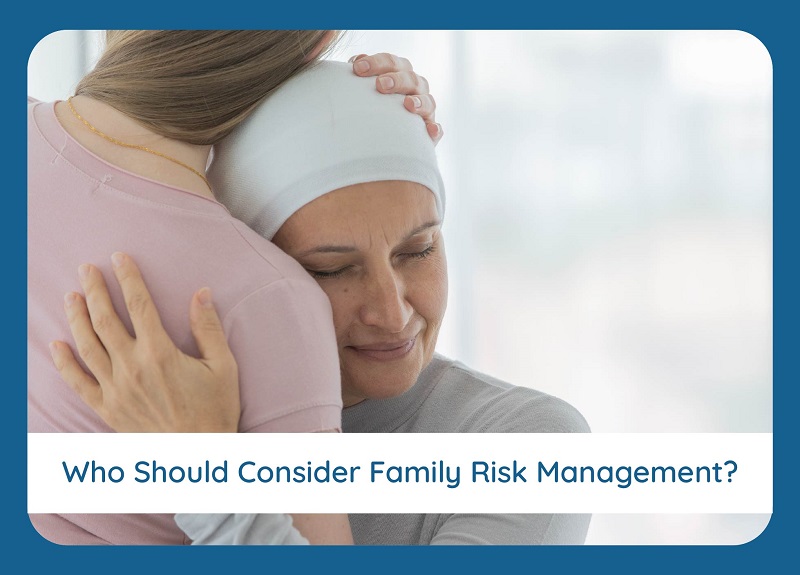
Family Risk Management: Screening and Monitoring for Relatives
Could cancer run in your family?
When a family member is diagnosed with cancer - especially at a younger age or with multiple tumors - it can raise alarming questions:
"Am I or my child at risk too?"
"Can we prevent this from happening again in the family?"
Welcome to Family Risk Management - a comprehensive service led by Dr. Aparna Dhar, a renowned expert in hereditary cancer and genetic counseling in Delhi. Through a personalized, scientifically sound, and emotionally sensitive approach, she empowers families with the tools and information needed to stay ahead of cancer.
Why Family Risk Management Is Important
A significant number of cancers are not random; they are hereditary. This means they are caused by gene mutations passed from parents to children. These mutations can silently increase the risk of certain cancers - such as breast, ovarian, colon, prostate, pancreatic, or uterine cancer - within a family.
Inherited Mutations Can Be Powerful Predictors
When a person is found to have a hereditary mutation (like BRCA1, BRCA2, or Lynch syndrome mutations), their immediate relatives have up to a 50% chance of carrying the same mutation
Early Detection Saves Lives
Cancer detected early is more likely to be treated successfully. In some cases, with the right intervention and surveillance, it can even be prevented. Dr. Aparna Dhar helps families move from uncertainty and fear to clarity and control, by designing custom plans for early detection, genetictesting, and risk management.


Who Should Consider Family Risk Management?
You or your family members may benefit from this service if:
You were diagnosed with cancer at a young age (e.g., breast, ovarian, colon, prostate, pancreatic cancers under age 50)
There are multiple relatives with the same or related cancers
A close relative was diagnosed with a known hereditary cancer syndrome (e.g., BRCA1/2, Lynch Syndrome)
You've had more than one cancer, or rare/unusual tumors
You or your relatives belong to populations with a higher risk of genetic mutations (e.g., Ashkenazi Jewish ancestry)
What Dr. Dhar Offers
- Genetic Testing for At - Risk Family Members
The cornerstone of any family risk program is understanding your genetic blueprint.
If a patient is found to have a hereditary cancer mutation (the “index case”), their first-degree relatives may also be at risk.
Dr. Dhar offers predictive genetic testing to healthy relatives to identify whether they also carry the same mutation.
These tests are done through a simple blood or saliva sample, often with results in a few weeks.
- Personalized Screening Plans
Testing positive doesn't mean you'll definitely get cancer—but it does mean your risk is higher. That's where personalized screening comes in.
Dr. Dhar creates tailored surveillance plansbased on international guidelines and your specific family history, including:
Regular blood tests and imaging (e.g., mammograms, MRIs, colonoscopies)
Preventive ultrasounds and cancer marker tests
Starting screening at an earlier age
Increased screening frequency based on risk level

- Ongoing Monitoring and Follow - Up
Your family's risk doesn't end with one consultation. Genetic science is evolving - and so is your care plan.Dr.Dhar provides lifelong follow-up, keeping you updated as new research, therapies, or screening guidelines emerge.
Annual review of family history
Updates on new testing technologies
Mental health and emotional support referrals, if needed
- Supportive Genetic Counselling
Genetic testing can be emotionally complex. The idea of discovering a mutation that could affect your children or siblings may feel overwhelming.
Dr. Aparna Dhar is not only a medical expert but also a trusted genetic counselor who offers gentle,honest, and family-friendly communication.
She explains test results in clear, non-scary language
Helps you talk to children and relatives about risk
Respects your pace - never forcing you to make decisions before you're ready
Whether you decide to test now or later, you'll have all the information you need to make a confident, empowered choice.
- Preventive Strategies and Risk-Reducing Options
In some cases, proactive stepscan dramatically lower your risk.Depending on your situation, options may include:
Preventive surgeries (e.g., risk-reducing mastectomy or removal of ovaries)
Medications
Lifestyle changes (diet, weight management, exercise, avoiding tobacco/alcohol)
Hormonal balancing and reproductive counseling (especially for younger women at risk)
All recommendations are made in collaboration with oncologists, surgeons, andgynecologist, ensuring holistic care.
What If I Don't Want to Know Yet?
That's okay. Genetic testing is always a personal choice. Dr. Dhar's role is to inform, not pressure. Even if you're not ready for testing, she can help you understand your options and set up a plan if and when you choose to move forward.
Your Family, Protected by Knowledge
With Dr. Aparna Dhar's guidance, families don't have to live in uncertainty. Her goal is to turn inherited cancer risk into an opportunity for prevention, early detection, and peace of mind - not panic.
By managing risk today, you can protect your loved ones' health tomorrow.
